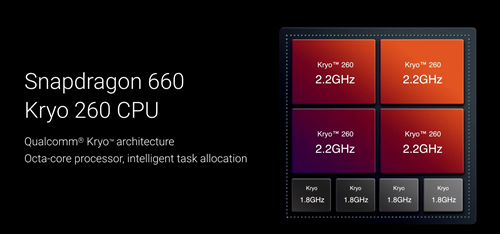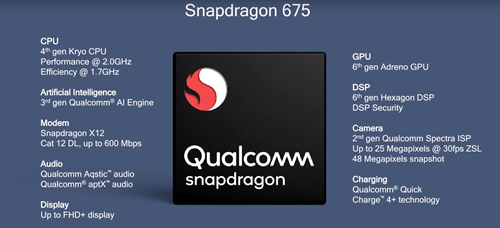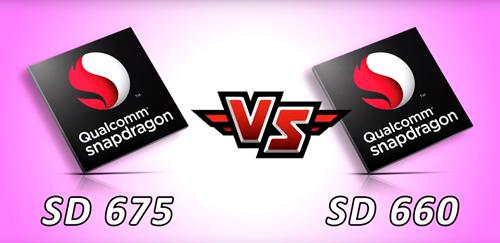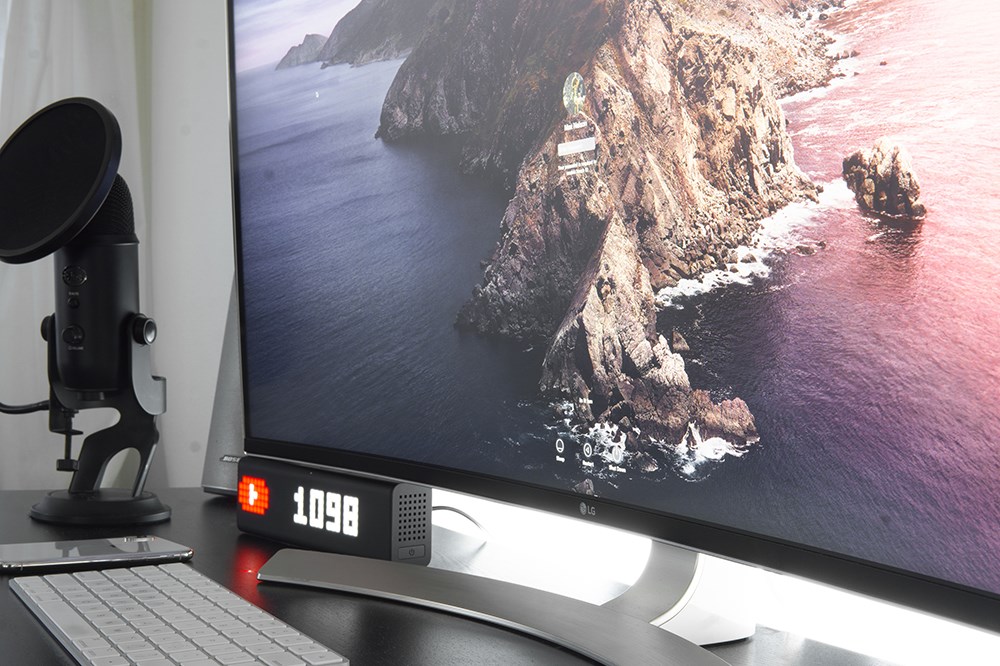Snapdragon 660 vs. 675 – Which is Better?

Qualcomm’s Snapdragon 660 first entered the market in 2017, and it quickly became one of the most popular smartphone chipsets. It’s the first Snapdragon processor with custom Kryo cores (which are also found in high-end chipsets like the Snapdragon 845), and that means it left a huge impression.
The Snapdragon 675 was released in late 2018 as an improved version of the Snapdragon 670. It brought improvements in AI, gaming, and photography, and it’s fitted with 4th generation Kryo cores. The two chipsets are very close in performance, so let’s see which one takes the winning spot.
Performance
The Snapdragon 660 is considered to be a mid-range processor, and it has a 14nm LPP FinFET fabrication process. But newer mobile processors, such as the Snapdragon 675, have smaller process nodes for increased power efficiency. The 675 uses Samsung’s 11nm nodes.
The 11LPP fabrication process is an improved version of Samsung’s 10nm Back End of Line or BOEL interconnect that shares some features with 14nm nodes and has a smaller chip. That results in a 15% better performance and a 10% smaller chip.

The 660 is made of four semi-custom ARM Cortex-A73 performance cores, with speeds of2.2GHz, as well as four Cortex A-53 efficiency cores which are working at 1.7GHz. The 675 has a different chipset with 8 Kryo 460 cores, two A76 performance cores, working at 2.0 GHz, and 6 efficiency Cortex A55 cores that can work at 1.7GHz. This architecture design provides a 20% performance boost.

There also some significant differences between the GPUs. The Snapdragon 660 packs a mid-range Adreno 512 graphics chip that supports OpenGL ES and Vulkan 1.0. But the Snapdragon 675 has the newer Adreno 612 GPU, which offers support for the latest technologies like Open CL 2.0, DirectX 12, Vulkan, and Open GL ES 3.2. It provides better gaming performance and a smoother overall performance than its predecessors.
Testing showed that the Snapdragon 675 performs better than the 660 in every category except when testing OpenGL and Vulcan.
Gaming Performance
When it comes to gaming, it’s important that the Snapdragon 675 features Kryo 460 CPUs that work with Arm Cortex Technology. You can feel the 20% performance boost while gaming. This processor is one of the most potent Qualcomm processors, and it can handle gaming and multitasking without any issues (such as frame rate drops).
On the other hand, the Snapdragon 660 has a powerful GPU that provides impressive graphics and a fantastic 3D gaming experience. The Adreno 512 GPU has 30% higher performance numbers than the previous generation. But although your gaming experience will look great, you may experience lags and frame rate drops.
Camera Performance
Modern phones have three cameras, and the Snapdragon 675 supports three cameras on both sides. It also allows you to save 5X telephotos, 2.5X wide-angle, and super wide-angle photos. Furthermore, it has the Qualcomm Spectra 250L ISP bundle, which is able to capture vivid colors and details with your cameras, up to 25 megapixels. The snapshot quality reaches 48 megapixels.
The Snapdragon 660 supports only two cameras. It can work with a 25-megapixel single camera or two 16-megapixel cameras. It utilizes the Qualcomm Clear Site and the Spectra 160 ISP features to provide spot-on color reproduction and clear pictures. The quality of the photos is satisfactory, but it can vary depending on your phone.
Connectivity and Charging
To everyone’s surprise, Qualcomm decided to fit the ancient X12 LTE modem into both the Snapdragon 675 and the 660. The modem can provide download speeds of up to 600 Mbps, while it goes up to 150Mbps when uploading. The Snapdragon 660 bundles Quick Charge 4, while the 675 offers a newer and improved version called Quick Charge 4+.
AI
The 675 doesn’t come with a dedicated neural processor. It uses a multiple core Qualcomm AI Engine instead. It combines the Hexagon 685 DSP, Kryo 460 CPU, and Adreno 612 Graphics Processing Unit. The engine can process information better, and it also helps you to take some impressive photos.
The 660 uses Qualcomm’s Neural Processing Engine SKD, which supports AI frameworks like Google’s TensorFlow and Caffe/Caffe 2. It is ideal for phrase identification, word matches, and scene recognition.

The Bottom Line
Should you get a smartphone with a Snapdragon 675 processor? The answer depends on what you want to use it for. Unsurprisingly, the Snapdragon 675 offers better performance and has newer features, but the difference isn’t always significant.
Which chipset do you have in your smartphone? Do you think that the Snapdragon 675 is worth upgrading to? Share your thoughts in the comment section.
















